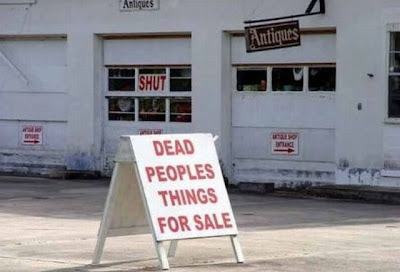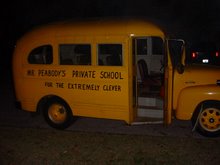Sometimes commentators make connections and notice things that the bus driver doesn't.
For instance, in a post earlier today I made reference to a SN-L story where our favorite auctioneer is talking about those evil, evil earmarks.
We join the tale in progress, Long is quoted, he is speaking of earmarks. The first "They" refers to earmarks. The second "They" -- I guess that refers to career politicians, you know, the ones Long is fed up with:
They also get used as a form of bribery. They say, 'If you vote for my Turtle Tunnel in Iowa, I'll vote for yours in the great state of Missouri.' ...
I used that quote from Moring's story to illustrate how Long tells tales.
A frequent bus rider made the comment that in his stump speech Long said the turtle tunnel was in Florida. Now, in the newspaper, he is saying it is in Iowa.
"Just where is that damn turtle tunnel?", the commentator asks.
It's in Florida, a long, long way from Iowa.

The amazing thing about the internet is that an old guy like me, who doesn't have much short term memory left (where did I leave my keys, wallet, watch, shoes, etc) can google just about anything and find an answer quickly. Sometimes it is even the right answer.
The
Lake Jackson Ecopassage, or "Turtle Tunnel" as Long mockingly calls it, has a website that has a wealth of information about the project.
The Lake Jackson Ecopassage is now complete! The last bit of construction equipment left the site on Friday August 27th. After a decade of sustained effort by the Lake Jackson Ecopassage Alliance, under the direction of Dr. Matthew Aresco, the dream has been realized.
It's been a tumultuous ride over the past 10 years, exacerbated by the negative publicity garnered in the 11th hour by the misinformation that was distributed by those against stimulus funds. Despite all of the hurdles, the Lake Jackson Ecopassage Alliance and its 13.4 million supporters have prevailed.
The world's deadliest turtle highway (has been turned) into the world's safest wildlife crossing.
Turtle tunnel. But what is not well known is that these turtles crossing the highway weigh up to twenty pounds.
Can you imagine the damage a twenty pound turtle does to an
automobile that hits it? Not to mention what it does to the turtle?
Let's look at the rest of the story, courtesy of
Michael Markarian. He's the COO/EVP of the Humane Society.
Ten years ago, a Florida State University graduate student named Matt Aresco noticed a proliferation of dead turtles--some weighing 20 pounds--littering the side of Highway 27.
When he got out of the car to take a look, he picked up 90 dead turtles in a third of a mile stretch of highway. Through painstaking research, he documented the highest rate of turtle mortality on any road in North America--more than 2,000 turtles per mile per year. Ninety-eight percent of the turtles who try to cross, Aresco found, get killed.
Highway 27 was constructed before there were rules about protecting wetlands, and it sliced Lake Jackson, a state aquatic preserve, into two. The turtles--and alligators--follow the same route they've traveled for thousands of years, but now it's a death sentence. Sixty-two species of reptiles, amphibians, and mammals have been found attempting to cross Highway 27.
"I got sort of callous finding the dead turtles," Aresco told the St. Petersburg Times. "But it's the live ones you see die right in front of you that get to you. In seconds, they are in pieces. Some of these turtles are 30 years old."
Aresco was the first person who ever tried to do anything about the problem. He started a citizens' group to advocate for the Lake Jackson Ecopassage. Joined by scores of local schoolchildren, the citizens brought the problem to the local county commission, which agreed immediately to do something to ensure traffic safety and wildlife protection. The county commission brought it to the regional transportation planning agency, which brought it to the Florida Department of Transportation, and after a decade of discussing, voting, planning, and designing, the project is ready to go. In federal stimulus-speak, it is "shovel ready." A private donor purchased the additional right-of-way needed for the project for $370,000 and donated the land to the state -- a perfect example of a public-private partnership that benefits the entire community.
Who would second-guess a community's very deliberative and measured solution to a problem that has gone on far too long? And who would want to hit a 400-pound alligator, or a turtle the size of a cinder block, at night while speeding down the highway?
An answer to the first question is Billy Long. An answer to the second question is NOT ME!
But getting back the title of this post, that other stuff: the lack of attention to detail, the hyperbolic statements, the duplicity.
The turtle tunnel is NOT in Iowa, it is in Florida.
Long's campaign has NOT received 'jillions of surveys'.
Long is NOT, as he has identified himself on at least two of the 'no earmark pledges' he has signed, a member of congress.
(In researching this post I found several more pledges Long signed. He is, indeed, a serial pledger!)
Long's
sloppy rhetoric was noted way back in May, 2009 by the then KY3 political reporter:
The first time Gary Nodler throws a fastball at him, he'll get away with laughing it off as the non-politician. But the second or third time, Long will be expected to articulate a coherent policy response. We're not saying it won't happen, we just point out that it's the elephant in the room. Another shot being quietly asked about Billy: How can the rich guy who lives in Highland Springs get away with being the regular Joe at the same time?
And this from August 16, 2009:
But throughout his humorous and off-the-cuff repertoire, Long has a tendency to make some statements that could come back to haunt him. He mocked the plight of the uninsured ("Get out the crying towel") and claimed that 26 million people under 35 probably don't want health insurance anyway. Claiming that President Obama's healthcare plan might have taken his mother's life back in March of 2008 is also quite a strong charge. It's all done in the loving-aw-shucks Long way, but in a competitive race where a sliver of moderate Republicans could matter, those statements may rub some the wrong way.
Even Steve Helms didn't anything to impress him: "I'm just not really seeing...the type of candidate I'd like to see represent Southwest Missouri." KY3 political blog, April, 2009.
And then there's that comment by Nathan Hale.
 Fed up yet?
Fed up yet?








.jpg)
















































